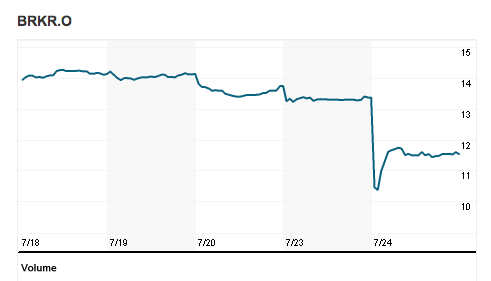
Our co-ed relay team, if we had one. Taken at United States Olympic headquarters in Colorado Springs.
Every 4 years (well, every 2 years), a bunch of cities awash in something between pride and desperation mortgage their citizens’ children’s futures for a chance at hosting a glorified track meet. Thus the Olympics, which the London organizing (excuse us, “organising”) committee assured us will put their town on the map and in the global public consciousness.
Yes, because no one around the world has ever heard of London or visited it. But now they will. The Games of the XXX Olympiad already acknowledge a 101% cost overrun, again for a shindig that lasts 16 days.
The most ridiculous part of the Olympics is that it’s billed as a way for the nations of the world to cast aside their political differences and play nice. Except the Olympics are just about the most political thing on Earth. Let’s see:
- Taiwan competing as “Chinese Taipei”, complete with an artificial flag, so as not to irk the Red Chinese.
- Macedonia competing as the mellifluous “Former Yugoslav Republic of Macedonia”, because Greece has a neighboring province called Macedonia. This would almost be like New Mexico insisting that Mexico change its name to Former Spanish Protectorate of Mexico.
- Palestine, which isn’t even a country, competing as one.
Every single Olympiad, with the exception of the 1984 Summer Games in Los Angeles, has lost money. (That Olympiad’s chairman, Peter Ueberroth, slapped corporate logos on everything and saved taxpayers untold millions.)
And let’s not forget the 1972 USA basketball team getting jobbed out of a gold medal, the same thing for Roy Jones Jr., and…well, basically everything non-drug-related on this list.
Still, this was pretty awesome.
Alright, the Carnival of Wealth. Personal finance blog posts from around said world. Some good, most awful, none dull. Shall we?
Lance at Money Life & More spent a few seconds writing a post about why should ask for more, but not be greedy.
Now here’s an idea we can get behind, for a post-2012 America whose chief executive will be either a guy who imposed socialized healthcare on the entire nation, or one who imposed it just on a single state. From Cameron at DQDYJ.net, a modest proposal: taxing fat people.
A wonderful recommendation whose time has come. The slow, aesthetically unpleasant, lazy, corpulent legions who infringe on our airplane seats, keep us waiting in the grocery aisle, and take up unwarranted mils in our field of vision have had their way long enough. If they ate intelligently and exercised, no one could make political hay out of a problem that wouldn’t need fixing. There are people who eat donuts for breakfast in this country.
(Wait. It was satire? Never mind.)
We were looking forward to Part IV in W at Off Road Finance‘s series on alternatives to investing. Instead, we’re treated to an interlude about correlation in the stock market. (“Correlation” in the mathematical sense, using the Pearson product/moment method.)
Did we lose some of you? Correlation, a way to boil two sets of corresponding data down to a single value between -1 and 1. Take two quantities like height and weight, and you’ll have a correlation close to 1. Alcohol consumption and brain function, that’d be more like -1. Years of education and number of pets owned? As far as we know those are unrelated, which means a correlation near 0. And movements in the S&P 500 and in Microsoft stock, .76 by W’s calculations.
(A post about why it’s important to have an emergency fund. We wish all the people who write about this would incur legitimate emergencies, just to see what would happen.)
We didn’t know there was a name for this, but Free Money Finance talks about the phenomenon of “showrooming.” You look at something in a store, then buy it cheaper online. Thankfully, most of the showroomers who went to the trouble of leaving comments on his post were unapologetic about doing so. A few sanctimonious Luddites whined about the shuttering of Main Street. And you wonder why we don’t allow comments, only trackbacks.
(Indian remote assistant-penned post. Thanks, but we’ll pass.)
Favour! Cheques! And other colonial forms of spelling! Check out Teacher Man at Young & Thrifty, who’s solved the rat race by going straight at the first turn and heading for small-town Canada. You know, for the folks who think that Winnipeg is too cosmopolitan.
Visited Winnipeg once. In winter. -50º without the windchill, and at that point the scale doesn’t matter because that’s so cold that the Celsius numbers are greater than the Fahrenheit ones. The women had sideburns, a genetic adaptation similar to black skin in the tropics or oversized lungs in the Himalaya. There was a story that teenagers would pass the time by walking without head coverings, to town from the suburbs, then go into a heated indoor area and see whose motor skills would warm up first and allow them to touch their fingers to their noses. Winnipeg. Great place.
Heard of Bitcoins? Sooner or later, you will. And Charles Davis at Wallet Hub has the most understandable explanation of them we’ve seen so far. Let the Yap Islanders use giant round stones for money. We in the First World are better than that.
From the indomitable Neal Frankle at Wealth Pilgrim comes a post on how to create income using mutual funds. Not just appreciation, income. The growth/stability trade-off, subjected to quantification. Comprehensive and easily understood, with actionable advice and no endless first-person whining. Why can’t every post be like this?
In our book (available on Amazon!) we bemoan parents’ refusal to discuss money with their kids. Kids get the sex talk, the alcohol talk, maybe even the drugs talk, but never the money talk. David Marotta at Marotta on Money shares our lament, and implores you to stop what you’re doing and at least discuss Roth IRAs with your precious little snowflake.
Or you can just let your kid take out a student loan to study something useless and then spend decades paying the loan off. Your call.
We just read David’s bio. We’ll have to check the records, but we’re pretty sure he’s our first submitter to have played chess with Edward Teller. Apparently, the U.S. State Department has a chess team. Also, David’s favorite number is e. We’re big Euler-Mascheroni constant people ourselves.
John at Nerd Wallet asks, rhetorically, if you should open a personal joint checking account. Here’s a handy, not-at-all obvious summary culled from it:
Do NOT open a joint bank account with anyone that you do not completely trust.
(Boldfacing and italics his.)
Andrew at 101 Centavos is another guy with a permanently reserved table at the CoW. His directive this week is to RTFC. The c stands for “contract”, the rt for “read the”, and if you bought a house without taking into consideration what might happen if you failed to make your mortgage payments, you deserve to lose it and should thank your repossessing lender for saving you from subsequent failure. Just about every economic misfortune we’re suffering, individually and in the nation and world at large, could be cured if people went to the trouble of understanding what they were getting into.
But it’s complicated!
Then hire a professional to decode the documents for you before you sign. And understand that attaching your signature to something is more than just a way to show off your penmanship.
John at Wallet Blog is infamous around these parts for giving us the heads-up on portentous news. This week, he illustrates how an upcoming reduction will shrink the gift tax exemption from $5 million to $1 million. Yeah, yeah, what do you care, that’s for the Mitt Romneys of the world, whatever.
You’re missing the point. We should make it as easy as possible for rich people to move capital around. That way, they can do something productive with it, instead of looking for tax shelters that add little to the world stock of value. The Cayman Islands didn’t ask to be an offshore haven: countries like the U.S. prompted the Caymans to fill that role.
And just like that, it was over. Again, we’re after quality here. If you want a carnival with lots of entrants, none of which you’re going to read, there are more inclusive ones out there that are easier to find, if not to digest.
As for us, we’ll be back with new posts every Wednesday and Friday, a new CoW every Monday, and occasional fits of genius on ProBlogger, Investopedia and elsewhere. See ya.





